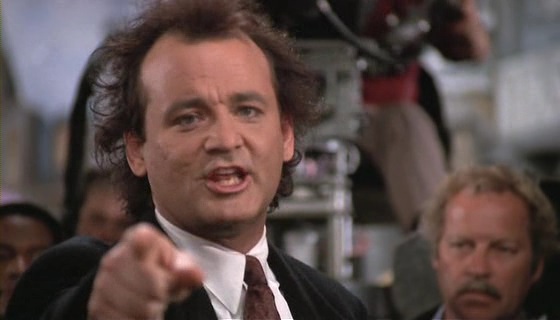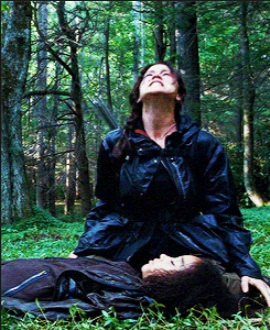We’ve been going about this all wrong.
 Oklahoma’s political leadership is NOT going to support public education. There won’t be increases to funding, or teacher raises of any real substance. Legislation in the next decade will be just like legislation in the past decade – more limits, more measuring, more changing the rules as often as possible. More hostility, more red tape, more blame piled on schools for spending so much time and energy on that exact same red tape.
Oklahoma’s political leadership is NOT going to support public education. There won’t be increases to funding, or teacher raises of any real substance. Legislation in the next decade will be just like legislation in the past decade – more limits, more measuring, more changing the rules as often as possible. More hostility, more red tape, more blame piled on schools for spending so much time and energy on that exact same red tape.
Why fight it anymore?
It’s not like it matters if we get 60%, 70%, even 80% of the public behind us. Calls to legis concerning ESAs were something like 4-to-1 against and it still went through committee. Once the Blaine Amendment is repealed and the State Constitution changed so that the OK Supreme Court can no longer declare anything unconstitutional, it’s pretty much over anyway.
And yet we keep burning up those keyboards and spiking that blood pressure to accomplish… what?
Not much.
Thus my opening realization. We’ve been going about this all wrong.
Maybe they’re right.
 Maybe private schools ARE better at everything. There are certainly a number of very impressive institutions around the Tulsa area, and I assume the same thing is true over in OKC.
Maybe private schools ARE better at everything. There are certainly a number of very impressive institutions around the Tulsa area, and I assume the same thing is true over in OKC.
Maybe choice IS good. Maybe competition spurs excellence, just like with fast food chains or cable television programming. Maybe we’ve been fighting to keep education stuck in the 20th century, and it’s time to move into the 19th.
Maybe vouchers DO actually save money – parents get their 80% of current per-student allocation and the rest is magical gravy. According to those unending ESA talking points, the more kids who leave public schooling, the better off the remaining children ARE as a result! How exciting!
And here we are, blogging and fussing and kicking and screaming to prevent that kind of progress. Progress that will make so many legislators happy. Progress that will save the state SO much money.
Progress that will be SO good for ALL of the children.
Why keep public schools at all?
 Assuming our elected leadership has the slightest idea what they’re talking about, any child stuck in a public school is being undereducated and underserved. Parents who CARE take their child and their edu-gift card and shop for something better. Parents who don’t… well, their kid is stuck in all of these sucky schools staffed by whiney unionized teachers and bloated administrations who won’t even voluntarily consolidate.
Assuming our elected leadership has the slightest idea what they’re talking about, any child stuck in a public school is being undereducated and underserved. Parents who CARE take their child and their edu-gift card and shop for something better. Parents who don’t… well, their kid is stuck in all of these sucky schools staffed by whiney unionized teachers and bloated administrations who won’t even voluntarily consolidate.
So let’s do what’s best for ALL kids. Let’s end public schooling altogether.
Every student’s family will have receive an immediate voucher to spend at a much better school of their choice. Religious, secular, big, small – whatever. The free market is god, after all.
Granted, this could be a bit disruptive in the short term, but I have no doubt that the power of capitalism will overcome all difficulties. Religious institutions of all varieties will step up to claim their share – evangelical churches as well as more orthodox denominations, Catholics as well as Jews. The Islamic community will certainly be ready with top quality options quicker than most, and the Buddhists will presumably make less fuss than, well… anyone.
And remember those zany atheists who wanted to build that devil bench on the capitol grounds next to the Ten Commandments? They’ll JUMP at the chance to have their own SCHOOL! Their science scores will be AMAZING!
 Businesses of all sorts are welcome as well. Pearson, Holt-McDougal, and any number of Computer Bank Academies – probably the most cost-effective of the bunch. They’ll take all comers without fear or filters, knowing that one of their own primary arguments for ESAs is that private schools succeed because of FREEDOM. The kind of freedom which we’ll finally let ring, unshackled by the expectations and accountability previously crippling public schools.
Businesses of all sorts are welcome as well. Pearson, Holt-McDougal, and any number of Computer Bank Academies – probably the most cost-effective of the bunch. They’ll take all comers without fear or filters, knowing that one of their own primary arguments for ESAs is that private schools succeed because of FREEDOM. The kind of freedom which we’ll finally let ring, unshackled by the expectations and accountability previously crippling public schools.
I’m sure there will be some growing pains for the first few weeks, but the important thing is that we’re finally making progress as a state – for the children. Individualized instruction. Choice. Excellence through capitalism – all while saving the state millions.
I confess I’m not entirely sure who’s most likely to pick up the substantial number of students whose parents aren’t overly active in helping make such decisions. I’m curious what new strategies we’ll see in play to accomodate students well below grade level or manifesting emotional or behavioral issues.
It’s called “the invisible hand,” after all, because there’s no telling what unexpected wonders will unfold among the highest needs populations, or transient students, or kids on IEPs, or anyone who’s not white or Asian. I honestly can’t imagine…
 But I guess that’s the same sort of uncertainty regarding market forces that’s been making me part of the problem rather than part of the solution, isn’t it? I need to let that go and believe (hashtag trustfall).
But I guess that’s the same sort of uncertainty regarding market forces that’s been making me part of the problem rather than part of the solution, isn’t it? I need to let that go and believe (hashtag trustfall).
Of course, not everyone will so easily accept that we’d be willing to make this sacrifice. They’ll want to do things gradually, burdened by compromises and half-steps. We may hear voices not known for defending public ed extolling the essential role it’s always played and lamenting its loss – that’s what you do at funerals, after all.
That’s why the onus is on US to do what’s RIGHT, whatever equivocating our political leadership suddenly manifests. This is where #oklaed, so proud of doing what’s best for KIDS rather than what’s convenient for US, must step up. No fear, no hesitation, no selfish second-thoughts.
We’ll all quit.
Together, at once. Every classroom teacher, bus driver, librarian, nurse, counselor, janitor, cafeteria lady, building principal, district secretary, all the way up to those way-too-many district superintendents, everywhere in the state. We leave for Spring Break as scheduled, and announce that no one – not one single educator – will be returning.
 This isn’t a strike. We don’t WANT anything for ourselves. There are no demands. We’re doing this for the children, so they can be free. We’re sacrificing our stubborn, unionized, lower-end-of-A-F ways and humbly confessing that we were wrong – state leadership is right.
This isn’t a strike. We don’t WANT anything for ourselves. There are no demands. We’re doing this for the children, so they can be free. We’re sacrificing our stubborn, unionized, lower-end-of-A-F ways and humbly confessing that we were wrong – state leadership is right.
The kids will be better off this way – so get those vouchers cranking.
Sure, a handful of us will end up working for the various private schools taking our place. Many will go out-of-state where we’d be already, if we had any self-respect at all.
And yet… it won’t be easy for most, such a big change in such a short time frame. But setting aside our own wants and needs to do what’s best for children is kinda what we do. Surely you’ve noticed our collective martyr complex?
The dramatic improvement across the range of students – from the pastiest engineering lad with awkward speech patterns to the most impoverished student of color in the heart of the city – will make it worth a little discomfort and a few years of Republican smugness as they save the future once again.
You might assume I’m using hyperbole, or trying to make a sarcastic point, but I’m totally not. Not this time.
 Start talking to your coworkers, superiors, and parents NOW. This has to be ALL or NOTHING.
Start talking to your coworkers, superiors, and parents NOW. This has to be ALL or NOTHING.
I understand your hesitation. It’s terrifying. Huge. Many of you aren’t sure what you’ll even do if you’re not holding back the children with your unionized antediluvianism.
Stop being so selfish! Smarter, more caring people than you are TRYING to let children have CHOICE, and a BETTER EDUCATION! Get out of their way!
All the way out of their way. And let’s see what happens.

 No one knows history anymore.
No one knows history anymore. Complete freedom is chaos, and extremely limiting, when everyone has it. Nothing lasting can be accomplished because we’re all too… free – and selfish in our freedom.
Complete freedom is chaos, and extremely limiting, when everyone has it. Nothing lasting can be accomplished because we’re all too… free – and selfish in our freedom. For those of you who didn’t go to Sunday School (tsk tsk!), the Old Testament is about taking care of US – the CHOSEN people, the GOOD people. It’s rather harsh for most everyone else – the OTHER, the UNCLEAN.
For those of you who didn’t go to Sunday School (tsk tsk!), the Old Testament is about taking care of US – the CHOSEN people, the GOOD people. It’s rather harsh for most everyone else – the OTHER, the UNCLEAN. Do we want to settle for compromises and logistics, tweaking via Amendment or reinterpretation from time to time, as we’ve done with our Constitution and (to a less-admitted extent) our scriptures; or do we want to strive for the ideals that are the ENTIRE REASON for either document to exist in the first place?
Do we want to settle for compromises and logistics, tweaking via Amendment or reinterpretation from time to time, as we’ve done with our Constitution and (to a less-admitted extent) our scriptures; or do we want to strive for the ideals that are the ENTIRE REASON for either document to exist in the first place? Except we’re not doing it for them – we never were. Ultimately, it helps each of us when we find a place for all of us. On the whole, it’s good for each of us when we learn to value all of us.
Except we’re not doing it for them – we never were. Ultimately, it helps each of us when we find a place for all of us. On the whole, it’s good for each of us when we learn to value all of us.